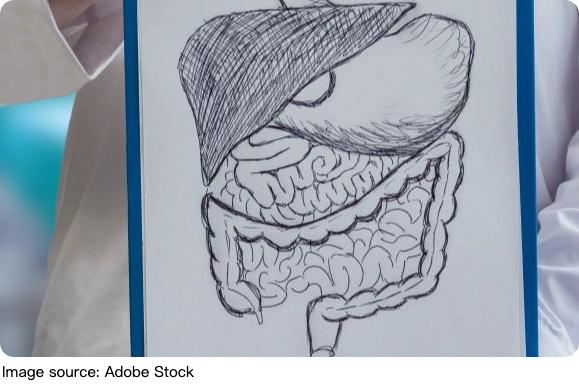Gut Health Alert

Hey Lykkers! How's everyone doing today? Let's get real for a moment. We often don't give much thought to our digestive system until something feels off.
That sudden post-lunch bloat, unexpected stomach cramps, or even feeling drained when you've had enough rest? Yep, those can all be your gut trying to get your attention.
Now here's the interesting part: your digestive system isn't just about breaking down food. It's deeply connected to your immunity, energy levels, and even your mood. In fact, experts estimate that your gut is home to over 100 trillion microorganisms—which is about the same as the number of human cells in your body (NIH).
So when your gut isn't happy, it doesn't just affect your stomach. It can show up in surprising ways throughout your whole body. That's why today we're going to chat about the warning signs your digestive system might need some extra care and what they actually mean.
1. Constant Bloating and Gas
Occasional bloating is normal, but chronic bloating may suggest issues like food intolerances, small intestinal bacterial overgrowth (SIBO), or IBS. Studies show that up to 10–15% of the global population suffers from IBS (International Foundation for Gastrointestinal Disorders), with bloating being one of the most common symptoms.
2. Irregular Bathroom Visits
Most experts agree that one to three bowel movements a day is healthy. Constipation means fewer than three a week, while diarrhea means too many too quickly. If you're on either extreme regularly, your digestive balance might be off.
Many people don't realize they fall short on fiber—on average, adults only get 15–17 grams per day, while the recommended intake is 25 grams for women and 38 grams for men (American Heart Association).
3. Frequent Heartburn or Reflux
One in five adults experiences acid reflux weekly (American College of Gastroenterology). If symptoms occur more than twice a week, it could point to GERD. Ignoring it doesn't just mean discomfort—it can damage the esophagus over time.
4. Ongoing Stomach Pain
Persistent abdominal discomfort should never be ignored. Conditions like ulcers, gallstones, Crohn's disease, or ulcerative colitis often show up as pain. According to the CDC, over 3 million Americans live with inflammatory bowel disease (IBD), many of them undiagnosed until symptoms worsen.
5. Unexplained Weight Changes
Sudden weight loss or gain without lifestyle changes can signal poor nutrient absorption. For example, celiac disease affects about 1% of the world's population (Celiac Disease Foundation), and many cases remain undiagnosed.
6. Tired All the Time
Your gut plays a role in energy production. Poor absorption of iron, B12, and magnesium can leave you chronically fatigued. Research shows that over 40% of people with digestive disorders report fatigue as a regular symptom (National Library of Medicine).
7. Unusual Stool Changes
Yes, it's not glamorous, but your stool tells the truth. Black or blood-tinged stools can indicate bleeding, while pale stools may suggest liver or gallbladder issues. Doctors often use the Bristol Stool Chart as a reference for what's healthy and what's not.
8. Food Intolerances Acting Up
Do dairy, gluten, or certain foods always leave you crampy or bloated? You're not alone. Around 65–70% of the world's population has some level of lactose intolerance (NIH). Listening to these reactions helps protect your gut lining and keep things balanced.
9. Getting Sick Too Often
Here's a biggie: about 70% of your immune system lives in your gut (Johns Hopkins Medicine). If you're catching colds more often than usual, it might be less about "bad luck" and more about your gut's microbiome being out of balance.
When to Take Action
Occasional discomfort is normal. But if symptoms last longer than two weeks, keep coming back, or interfere with daily life, it's time to see a doctor. Early checks can prevent long-term damage.

Final Thoughts
So, Lykkers, your gut really does talk to you—it just doesn't use words. Bloating, fatigue, irregularity, or constant reflux aren't just random annoyances; they're warning signs. By fueling your gut with fiber-rich foods, probiotics, water, quality sleep, and stress management, you strengthen not just your stomach but your entire body.
Remember: a healthy gut = stronger immunity, better energy, and a happier you. Don't ignore the whispers—your digestive system deserves your attention today, not tomorrow.


